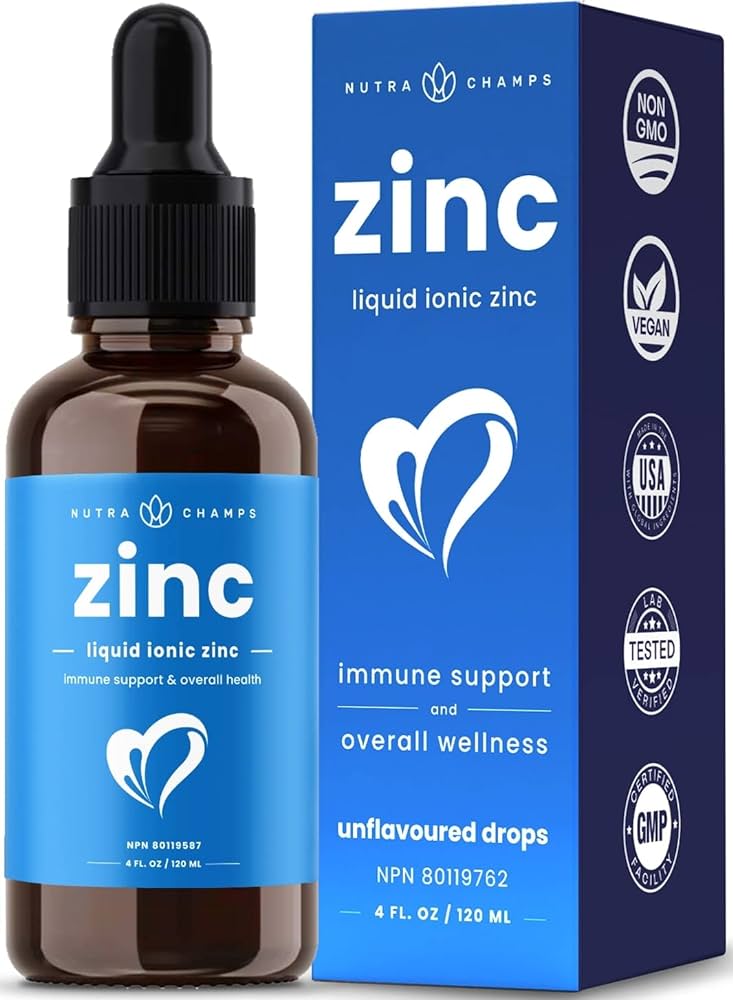Zinc is an essential micronutrient vital for numerous physiological functions within the human body. Zinc sulphate in liquid form is a prevalent and effective way of delivering this essential mineral, offering a range of benefits across various domains, from agriculture to healthcare. This article aims to delve into the properties, applications, benefits, and considerations associated with zinc sulphate in liquid form.
This product, from the brand Epigenetics, is available at Centralsun, check it out here: Liquid Zinc – Zinc Sulphate 100ml.
Properties of Zinc Sulphate:
Zinc sulphate, with the chemical formula ZnSO4, is a colorless, crystalline solid that dissolves readily in water. It is derived from zinc, a naturally occurring element found in the earth’s crust. In liquid form, zinc sulphate is often a clear, aqueous solution with various concentrations, making it versatile for different applications.
Applications in Agriculture:
One of the primary uses of liquid zinc sulphate is in agriculture. It serves as a vital component in fertilizers, providing plants with necessary zinc nutrients. Zinc is an essential element for plant growth, aiding in enzyme function, chlorophyll production, and overall development. Deficiencies in zinc can lead to stunted growth, reduced crop yields, and various diseases in plants. Liquid zinc sulphate is applied to the soil or foliage to rectify such deficiencies, ensuring healthier and more productive crops.
Industrial Uses:
In industries, zinc sulphate in liquid form finds applications in the production of various chemicals, dyes, and pigments. It serves as a precursor in the synthesis of other zinc compounds used in manufacturing processes, including the production of rayon, lithopone, and zinc-based catalysts.
Health and Nutritional Benefits:
Zinc is crucial for maintaining a healthy immune system, wound healing, and DNA synthesis. Liquid zinc sulphate is used in nutritional supplements and pharmaceuticals to address zinc deficiencies in humans. It is particularly beneficial for populations at risk of zinc deficiency, such as pregnant women, children, and individuals with certain health conditions that hinder proper nutrient absorption.
Considerations and Safety:
While zinc is an essential nutrient, excessive intake can lead to adverse effects. Overconsumption of zinc, whether through supplements or exposure to high concentrations, can cause nausea, vomiting, and interfere with the body’s absorption of other essential minerals. Therefore, it’s crucial to follow recommended dosages and consult healthcare professionals before starting zinc supplementation.
Environmental Impact:
The use of zinc sulphate in liquid form in agriculture and industries may raise environmental concerns if not managed properly. Excessive runoff of zinc-containing compounds into water bodies can potentially harm aquatic ecosystems. Proper application methods and adherence to environmental regulations are necessary to minimize the environmental impact.
Conclusion:
Zinc sulphate in liquid form is a versatile compound with significant applications in agriculture, industry, and healthcare. Its role in promoting plant growth, addressing nutrient deficiencies, and supporting human health underscores its importance. However, responsible use, adherence to recommended dosages, and environmental consciousness are vital considerations when utilizing liquid zinc sulphate to maximize its benefits while minimizing potential drawbacks.
